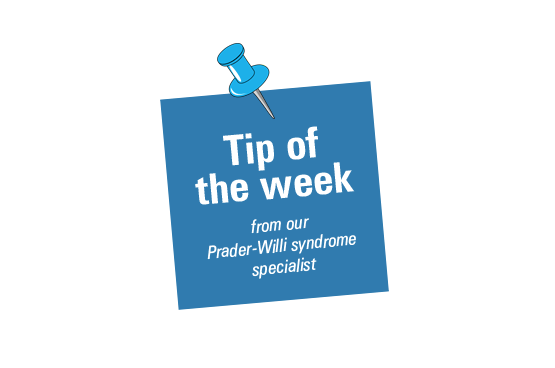Tip of the Week: Planned ignoring
February 22, 2019

Planned ignoring is an effective skill to use when you are working with someone who acts inappropriately to gain attention. The key to planned ignoring is to be certain that the behavior will not cause harm to the person or persons around them before utilizing this tool. Typically, we see a person seeking attention through unwanted behavior because it has been beneficial and rewarding for them in the past. People act in an inappropriate way and receive attention immediately, causing the person to understand that this behavior gets them what they want in real time. People usually behave in a certain way because it has worked for them in the past. Let’s change how we respond in order to change the behavior. Here’s how:
-
Ignore any unwanted behavior unless the person or others are at risk of imminent harm.
-
Praise and give attention any time the behavior is not happening, especially if it is at a time when you would typically see this behavior occur.
-
Look for any way to praise in the moment, even when the behavior is happening. For instance, if someone is screaming or banging but is sitting down, tell them you are really proud of them for sitting, tell them you are happy to see that they wore a warm sweater on a cold day, notice and praise them if their hair is combed or teeth are brushed, then immediately walk away and give zero attention to the outburst. Find anything you can to praise them for and ignore the unwanted behavior.
-
When the unwanted behavior stops, do not recognize the behavior at all, do not say you are glad they stopped screaming, give no attention to what they just did. Move on with praise and recognition for other behaviors that are wanted or desirable.
Soon the person will see that the undesirable behavior does not get them the reward that it has in the past. If you are not yet comfortable with trying this on larger behavioral issues, start small; start with low-level behaviors that do not directly interfere with programming as practice. The bottom line is that we want to encourage positive or wanted behaviors and discourage negative or unwanted behaviors, and the most effective way to do this is by giving attention to what you want to see, not what you don’t want to see.
Patrice Carroll is Latham Centers’ world-renowned Prader-Willi syndrome specialist. She works with Latham’s residents with PWS, their families, and consultants, continuously learning and teaching about PWS best practices. Do you have questions for our PWS specialist? Submit your “tip” topics or general questions to TipTopics@LathamCenters.org.
